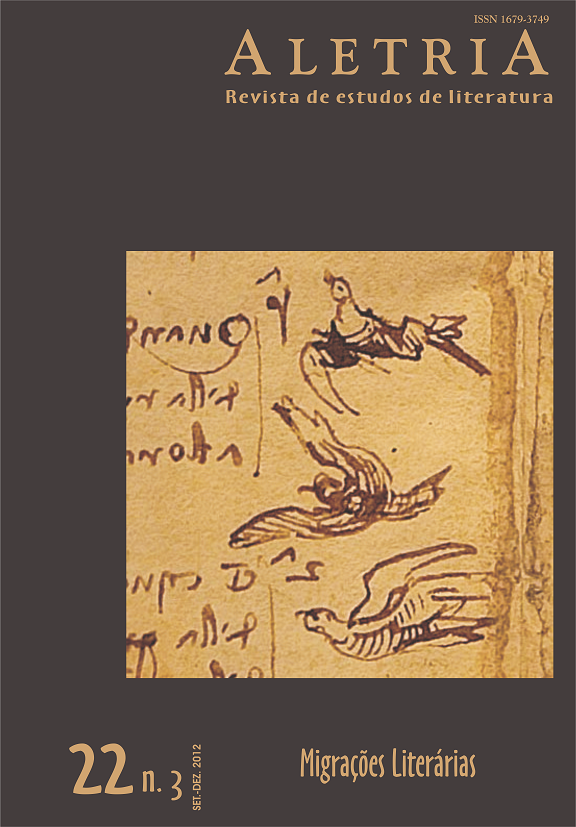Tensions of the literary space
DOI:
https://doi.org/10.17851/2317-2096.22.3.193-203Keywords:
space, literary space, modern literature, contemporary literatureAbstract
Analyzing images and scenes drawn from the work of five writers – Georges Perec, Edwin Abbott, Franz Kafka, Joan Brossa and Lewis Carroll –, the essay proposes reflections on the diversity and complexity of the category of space in modern and contemporary literature.
Downloads
References
ABBOT, Edwin A. Planolândia; um romance de muitas dimensões. Trad. Leila de Souza Mendes. São Paulo: Conrad, 2002.
BROSSA, Joan. Poesia vista. Trad. Vanderley Mendonça. São Paulo, Cotia: Amauta, Ateliê, 2005.
CARROLL, Lewis. A caça ao turpente. Trad. Álvaro A. Antunes. Além Paraíba: Interior, 1984.
CARROLL, Lewis. A caçada do snark. Trad. Jorge Bandeira. Manaus: Valer, 2008.
CARROLL, Lewis. The hunting of the snark. Disponível em: http://www.literature.org/authors/carroll-lewis/the-hunting-of-the-snark/. Acesso em: 23 maio 2010.
KAFKA, Franz. Narrativas do espólio. Trad. Modesto Carone. São Paulo: Companhia das Letras, 2002.
PEREC, Georges. Espèces d’espaces. Paris: Galilée, 2000.
Downloads
Published
How to Cite
Issue
Section
License
Copyright (c) 2012 Luis Alberto Brandão (Autor)

This work is licensed under a Creative Commons Attribution 4.0 International License.
Authors who publish with this journal agree to the following terms:Authors retain copyright and grant the journal right of first publication with the work simultaneously licensed under a Creative Commons Attribution Non-Commercial No Derivatives License that allows others to share the work with an acknowledgement of the work's authorship and initial publication in this journal.Authors are able to enter into separate, additional contractual arrangements for the non-exclusive distribution of the journal's published version of the work (e.g., post it to an institutional repository or publish it in a book), with an acknowledgement of its initial publication in this journal.Authors are permitted and encouraged to post their work online (e.g., in institutional repositories or on their website) prior to and during the submission process, as it can lead to productive exchanges, as well as earlier and greater citation of published work (See The Effect of Open Access).





